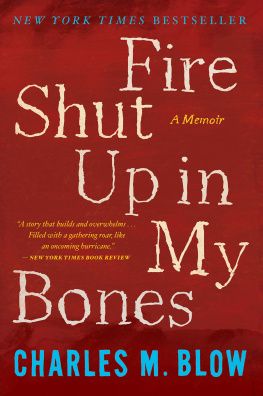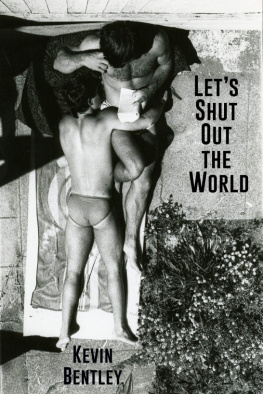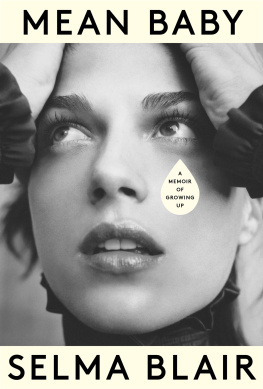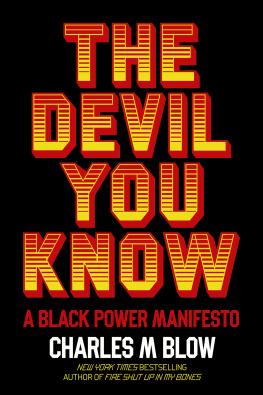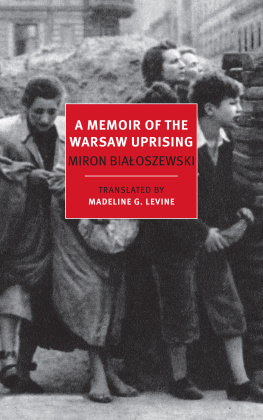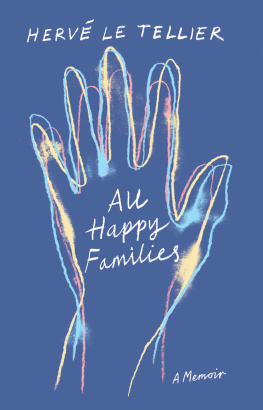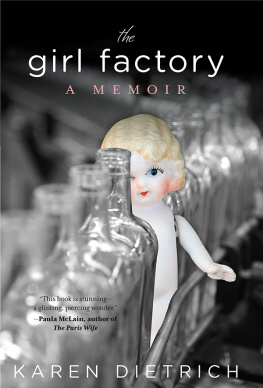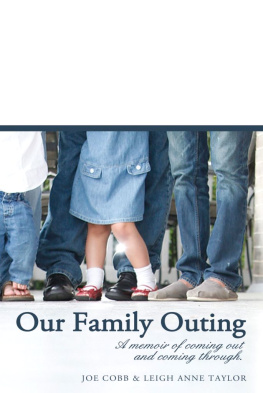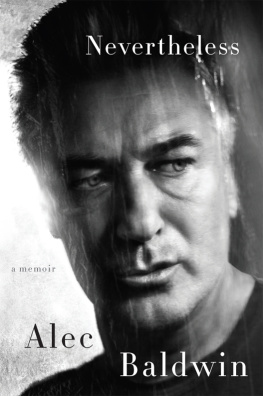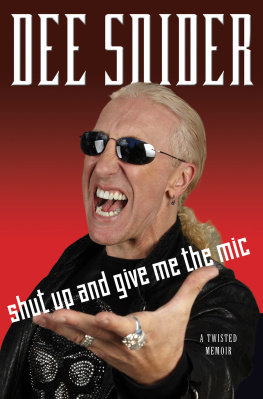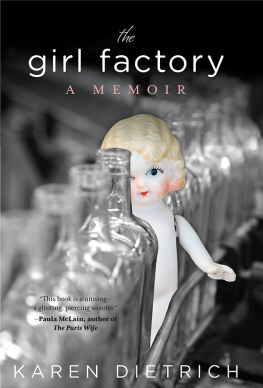First Mariner Books edition 2015
Copyright 2014 by Charles M. Blow
All rights reserved
For information about permission to reproduce selections from this book, write to Permissions, Houghton Mifflin Harcourt Publishing Company, 215 Park Avenue South, New York, New York 10003.
www.hmhco.com
The Library of Congress has cataloged the print edition as follows:
Blow, Charles M., date.
Fire shut up in my bones : a memoir / Charles M. Blow.
pages cm
ISBN 978-0-544-22804-7 (hardcover)
ISBN 978-0-544-57011-5 (pbk.)
1. Blow, Charles M., date. 2. JournalistsUnited StatesBiography. 3. African American journalistsBiography. I. Title.
PN 4874. B 575 A 3 2014
070.92dc23
[B] 2014006729
Cover design by Christopher Moisan
e ISBN 978-0-544-30258-7
v2.0815
Take My Hand, Precious Lord, words and music by Thomas A. Dorsey, 1938 (renewed) Warner-Tamerlane Publishing Corp. All rights reserved. Used by permission of Alfred Music.
Authors Note: Nearly all names of people in this book have been changed. No place names or other details have been altered. Some passages in this book were previously published in the New York Times.
To my mother, who is my rock.
To my children, who are my reasons.
PROLOGUE
Tears flowed out of me from a walled-off place, from another time, from a little boy who couldnt cry.
I had held on to the hurt and shame and doubt for so long, balling it up in the pit of me, that I never thought it would come out, or that it could. I certainly didnt think it would come out like this. Not in a flash. But there it was.
Some of my tears streamed over the arc of my cheeks and off the rim of my jaw. Others rounded the corners of my nose and puddled in the crease of my lips. I didnt wipe them. I wore them.
I looked over at the rusting pistol on the passenger seat. It was a .22 with a long black barrel and a wooden grip. It was the gun my mother had insisted I take with me to college, just in case. I had grabbed it from beneath my seat when I jumped into the car. I cast glances at it as I drove. I had to convince myself that I was indeed about to use it.
The ridges of the gas pedal pressed into the flesh of my foot as I raced down Interstate 20 toward my mothers house, just twenty-five miles away. I had driven this lonely stretch of north Louisiana road from college to home a hundred times. It had never gone so slowly; I had never driven so fast.
I began to scream as a fresh round of tears erupted. Motherfucker! I slammed my fists down on the steering wheel over and over. No! No!... Ah! Ah! In part I was letting it out. In part I was pumping myself up. I had never thought myself capable of killing. I was a twenty-year-old college student. But I was about to kill a man. My own cousin. Chester.
Minutes earlier I was in my apartment at school doing much of nothing, just pushing back against sorrow as it pressed down. My mother called. She told me someone wanted to speak to me. There was a silence on the line, and then words: Whats going on, boy?
It was Chester. He was at my mothers house, at our house. It had been years since I had heard that voice. Whats going on, boy? like nothing had ever happened, like everything was buried and forgotten. But betrayal doesnt work that way. Even when its buried, it doesnt stay buried. Its still alive, down there, scratching its way back to the surface. It must be buried over and over again.
I dont recall saying anything or even hanging up. I flung myself down the stairs of the apartment wearing only pajama pants and a T-shirt. No shoes. I burst out of the door and bolted to the car.
I was fully engulfed in an irrepressible rage. Everything in me was churning and pumping and boiling. All reason and restraint were lost to it. I was about to do something I wouldnt be able to undo. Bullets and blood and death. I gave myself over to the idea.
The scene from the night when I was seven years old kept replaying in my mind: me waking up to him pushed up behind me, his arms locked around me, my underwear down around my thighs. The weight of the guilt and grieving that followed. The years of his bullying designed to keep me from telling, and the years of questioning my role in his betrayal.
It was that betrayal, I believed, that had first caused a curiosity about guys to bleed into my attraction to girls. My lost innocence had to be avenged. My conflict had to be quelled. That is why he had to die. That is why I had to kill him.
I was convinced that if I removed him from the world, the part of me that I despised would go with him. A second wrong would restore me to right.
The House with No Steps
The first memory I have in the world is of death and tears. That is how I would mark the beginning of my life: the way people mark the end of one.
My family had gathered at Papa Joes house because Mam Grace was slipping away, only I didnt register it that way. For some reason I thought that it was her birthday.
Papa Joe was my great-grandfather. Mam Grace was his laid-up wife who passed the days in a hospital bed squeezed into their former den, looking out through a large picture window that faced the street, watching the world she was leaving literally pass her by.
We were in the living room when he called to us.
I thank she bout to go. I didnt know what that meant. I thought it was time to give her a gift.
With that, my family filed into her room, surrounding her with love. Their hearts were heavy. Mine, though, was light. I thought we were about to give her something special. They knew something special was about to be taken away.
She peacefully drew her last breath as her head tilted, and she fell still.
No dramatic death rattle, no fear-tinged soliloquy, no last-minute confession. Like a raft pushed gently from the shore, she drifted quietly from now into forevera beautiful life, beautifully surrendered.
But I recorded it differently. I thought she turned to see a gift that wasnt there, and that something went tragically wrong in the turning.
When Mam Grace left the room she took the air with her. No one could breathe. They could only scream.
My mother was overcome. She ran from the house, and I ran behind her. She threw herself to the ground near the hog pen, wailing, her back rocking against it. I shooed the hogs away as they tried to lap at her hair. I was too young to know what it meant to die, but tears I knew. Sorrow flooded out of my mother like a dam had broken. It was one, though, that she would soon rebuild, taller and stronger than it had been. As a child, I would never see her cry again.
I spent most of my life believing my three-year-olds version of what happened that day, until as an adult I recounted my memory to my mother and she set the story straightour gathering at Mam Graces bedside was not to celebrate the day she was born but to accept that it was her day to die.
My mothers telling of it seemed more fitting. As a child I became accustomed to death spectacles. I went to more funerals than birthday parties. My mother took me even when she left my older brothers behind. She thought me too young to stay home with them. I was also too young to understand what I was seeing at the funerals. My brothers once asked me how the dead man had looked at one of the services. I responded as a child would: Good, I guess. He was jus up there sleepin in a big ol suitcase.
I was born in the summer of 1970, the last of five boys stretched over eight years. My parents were a struggling young couple who had been married one afternoon under a shade tree by a preacher without a church. No guests or fancy dress, just the two of them, lost in love, and the preacher taking a break from working on a house.
Next page
